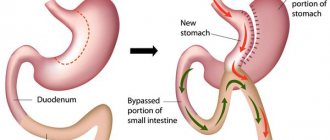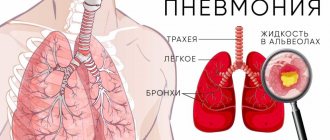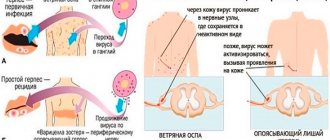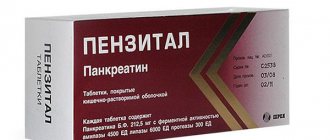Intestinal infections are a whole set of diseases that arise as a result of the spread of harmful bacteria. Despite the similar symptoms and methods of infection, which are identical, each disease has its own distinctive features, for example, the period from the moment of infection to the appearance of the first signs, danger to humans. In this case, every person should know how to cure an intestinal infection and how to recognize it at an early stage.
What are intestinal infections and where do they live?
Intestinal infections are infections of the body by bacteria, viruses or parasites through the gastrointestinal tract. Normally, many different types of bacteria live in our intestines. But if food, antibiotics or infection cause dysbiosis, unpleasant symptoms begin.
Symptom or cause? What is dysbiosis and what to do about it?
Most pathogenic bacteria enter the body with water or food. For example, you swam in dirty water and accidentally swallowed some, ate undercooked meat, a raw egg or expired kefir.
Intestinal infections are also called “dirty hand disease” because you can become infected through contact. An underestimated source of infection is patients without clinical manifestations of the disease.
A person remains infectious throughout the entire disease cycle: from the incubation period to complete recovery. And it can take up to several weeks. The infection enters the environment through feces and vomit, and viruses are transmitted by airborne droplets.
In the summer, the risk of infection is higher.
People interact with each other more often and more closely, the shelf life of products is shortened, and in warm conditions bacteria multiply faster. It is important to pay attention to children, who often accidentally swallow contaminated seawater and taste everything they see.
Bacterial pathogens of intestinal infections: Shigella, Salmonella, Vibrio cholerae, Staphylococcus, Escherichia, Brucella, Clostridia. Viral pathogens of intestinal infections: rotavirus, enterovirus, adenovirus. Bacterial intestinal infections associated with infection with staphylococcus and salmonellosis are more often diagnosed.
Types of viruses
Intestinal viruses are divided into several types:
- Rotaviruses. They belong to the Reoviridae family and provoke outbreaks of disease during the cold season. The virus causes severe diarrhea with dehydration, especially in children under three years of age. In some cases, urgent hospitalization and intensive rehydration therapy (restoring fluid balance in the body) are required.
- Noroviruses. It is believed that up to 50% of acute intestinal infections are caused by these viruses (family Caliciviridae). In children, noroviruses are the second most common cause of disease after rotaviruses. The virus was first identified in 1972. Clinical symptoms are similar to rotavirus infection. You can become infected not only through airborne droplets, but also through household contact, for example, through a handshake, a kiss, unwashed hands, any objects, toys used by an infected person or a carrier in the recovery stage. A person is contagious in the first two days from the moment of infection. But it may still be “dangerous” for some time, since eliminating the norovirus from the body can take up to two weeks. The first symptoms of the disease appear within 12-48 hours. Immunity is formed, but it is not stable; it lasts for about eight weeks. So you can get sick again if you don’t follow the rules of hygiene.
- Enteroviruses. Representatives of the family Picornaviridae. Most often, the pathogen attacks children, including those in the first year of life, as well as people with weakened immune systems. It is transmitted in the same way as other intestinal viruses.
How to identify the symptoms of an intestinal infection?
It is worth remembering that on average the incubation period of an intestinal infection ranges from 4 hours to 48 hours, in some cases it reaches 2 weeks or more.
Symptoms:
- Heat
- Repeated vomiting
- Severe abdominal pain that is not relieved by vomiting
- Prolonged loose stools (in some cases with mucus or blood)
- When infected with viruses, symptoms similar to influenza may also be observed: fever, headache, aching limbs, runny nose. There is even such a disease - intestinal flu.
All these symptoms can be considered food poisoning. But here's what to pay attention to so as not to confuse an intestinal infection with something else:
How to avoid food poisoning?
- symptoms last longer than 2-3 days;
- vomiting and diarrhea do not stop, and abdominal pain does not improve after vomiting;
- there is an admixture of mucus or blood in the stool, the color of urine or feces has changed significantly;
- you lose consciousness or have concomitant chronic diseases.
In this case, we strongly recommend that you consult a doctor. The consequences of infections are much more serious than the consequences of poisoning.
Important: do not take antibiotics without a doctor's recommendation. Especially if you have a viral infection. With a virus, they are ineffective and can cause harm by destroying the intestinal microflora.
How to treat and not pass on an intestinal infection to others?
Treatment depends on the pathogen and severity of the disease. For example, dysentery or norovirus can be treated at home. But only a specialist can help with salmonellosis. In any case, to make a decision on treatment, you must call a doctor and undergo laboratory tests.
Here's what you can do to get started:
- Restore water-salt balance. It is better to drink boiled or bottled water with the addition of special solutions for rehydration
- Take enterosorbents to relieve intoxication of the body, as well as painkillers and antipyretics
- Eliminate fried, salty, spicy, raw foods from your diet
- If you want to eat, it is better to give preference to simple food: soup, rice, bread
- Rest more
How to avoid infecting others if you or your loved ones are sick?
- Wash your hands thoroughly
- Regularly disinfect common areas and the patient's room: especially the toilet, bathroom, kitchen
- Provide separate dishes and towels for the sick person
- Change bedding and clothing regularly and wash them at high temperature (60°C)
- Limit your social circle, isolate the sick person
It is recommended to visit public places no earlier than two days after the symptoms have completely disappeared, and places such as a swimming pool are better after two weeks.
Patient Handbook
At the end of a long, hot summer, when the season is already ending and the sea has remained warm for a long time, the number of dangerous bacteria in sea water increases. We all know that the water is not ideal, and at the end of August you need to be especially careful.
Intestinal infections are parasitic, fungal, protozoal, viral and bacterial. Bacterial, viral and parasitic are more common, fungal and protozoal are less common. They are mainly transmitted by fecal-oral, airborne and contact routes. What does it mean? Through dirty hands, unwashed vegetables and fruits, stale food, contaminated water, and it is not necessary to swallow it, it is enough that it simply gets into the mouth (which is what happens when swimming in the sea). Water parks pose an even greater danger. The contact-household route is infection through household items, and the greatest danger is posed by coolers in public places, elevator buttons in apartment buildings, door handles of shops, pharmacies, canteens, public toilets, etc. If possible, do not allow small children to touch them! And of course, if you touch it, don’t put your hands in your mouth, don’t touch your face. If you are outside, you can wipe your child’s hands with antibacterial wipes, and then, at home, wash them thoroughly. An older child who walks alone should be given these napkins with him.
Acute respiratory infection with abdominal syndrome is transmitted by airborne droplets, fecal-oral route, which means that you can become infected even just by visiting a store. Adults who smoke also run the risk of becoming infected more often than others: they left a crowded office - touched the door handle - picked up a cigarette - put it in their mouth. The use of septic tanks in private homes also makes a significant contribution to the spread of intestinal infections, because process water is released onto the landscape after treatment.
The most common intestinal infections at the end of summer are viral; bacterial ones also occur. They usually have the following symptoms: weakness, lethargy, high fever, loss of appetite, refusal to eat, nausea, vomiting, loose stools, and sometimes a rash. Under no circumstances should you try to cope with an intestinal infection on your own, especially if we are talking about a child. It is best to call a doctor at home or bring the patient to Teremok Health. People often come to the pharmacy and ask the pharmacist to give them something “for diarrhea” and “for fever.” This is the wrong approach! The treatment of viral and bacterial intestinal infections is very different, so you should never treat yourself! Insufficiently effective treatment of an intestinal infection can lead to serious complications (for example, to the kidneys), and then the child will have to stay in the hospital for a long time. In addition, only a doctor can correctly assess the severity of intoxication syndrome, correct it in a timely manner immediately upon treatment, without delay. For this purpose, in the price list of the Teremok Health clinic there is the following service: relief of an emergency condition of moderate severity. This service includes an examination by a therapist and pediatrician, as well as all necessary emergency measures (intravenous and intramuscular injections, thermometry, etc.) and the appointment of further treatment at home. In addition, only a doctor can prescribe the necessary tests to make sure that the treatment went well, the patient does not have any dangerous intestinal infections, and there will be no complications. You can make an appointment with a pediatrician or therapist by clicking on the link.
My personal experience: When I made house calls, the largest number of calls for intestinal infections came from Adler and Resort Town. And when asked why they got sick, I received standard answers: yesterday they went to the water park, drank lemonade, which they sell from barrels on the street, swam. The least number of such calls came from the Olympic Park. As my engineer patients involved in the Olympic construction later explained to me, the treatment facilities there are new and built according to European standards.
The Teremok Health team of doctors wishes you a pleasant and safe last days of August and stay healthy!
How to avoid getting infected with rotavirus, intestinal flu and other infections?
There are a few simple rules:
- Wash your hands thoroughly with soap after visiting public places, toilets, and transport.
- Consume only thermally processed foods: especially meat, fish and eggs. Be careful with dairy and lactic acid products
- Wash vegetables and fruits
- Avoid expired products
- Drink only bottled or boiled water (especially on vacation), do not swallow water when swimming in open water.
All intestinal infections have a high degree of contagiousness, or infectiousness - the ability to be transmitted from organism to organism. Risk groups include young children and the elderly, patients with immunodeficiency, and employees of medical institutions and catering establishments.
You can get a stomach infection again because you don't develop immunity to it. However, a strong and rich intestinal microbiota will help prevent infection and ease the course of the disease. The more diverse the composition of the microbiota, the stronger the immune system and the body's immune response. This is why it is so important to take care of beneficial bacteria and maintain their balance in the intestines.
You can find out how diverse your microbiota is with the Atlas Microbiota Test.
Rotavirus infection - symptoms and treatment
Complications of the disease include dehydration syndrome, secondary bacteremia and candidemia (penetration of Candida bacteria and fungi into the blood), convulsions, aseptic meningitis, encephalitis, myocarditis, bronchopneumonia, hepatitis and acute renal failure.
One of the most common complications is dehydration syndrome , which develops with the loss of water and electrolytes. Determining its severity is extremely important to determine fluid replacement tactics for a particular patient.
When assessing the patient's condition, it is necessary to take into account the degree of dehydration - the type of fluid lost (extracellular and/or intracellular) and its volume. In children with rotavirus gastroenteritis, fluid loss usually occurs primarily from the extracellular space.
The amount of extracellular fluid lost is objectively measured by the change in weight from baseline. Since the weight before the disease is often not reliably known, a number of clinical signs (thirst, decreased urination, lethargy, irritability), as well as capillary refill time and objective examination data (pulse and respiratory rate, blood pressure, skin turgor) are used to assess the degree of dehydration. speed of skin fold straightening). Based on the totality of these data, dehydration is divided into degrees of severity:
- mild (loss of 3-5% fluid) - clinical signs may be absent or minimal;
- moderate (loss of 6-9% fluid) - tachycardia, gradual drop in blood pressure, decreased skin turgor, dry mucous membranes, irritability, prolongation of capillary refill time to 3 seconds, rapid shallow breathing, decreased urine volume, lack of tears, in infants - sunken fontanel;
- severe (loss of ≥ 10% fluid) - clinical picture of shock.
It should be noted that clinical signs of dehydration are reliable indicators in a comprehensive assessment: individually, each of them lacks sensitivity and specificity.
a clinical dehydration score in 2008 . It takes into account 4 parameters: general appearance, condition of the eyeballs, mucous membranes and the presence of lacrimation. According to this scale:
- A score of 0 indicates no dehydration;
- 1-4 points correspond to a mild degree of dehydration;
- 5-8 points - moderate and severe severity.
Another fairly common complication is seizures . They manifest themselves in the form of short focal seizures within 1-2 days and have a favorable prognosis.
All neurological complications of rotavirus gastroenteritis (convulsions, transient loss of consciousness, encephalopathy) are manifestations of extracellular dehydration and are caused by the development of hyponatremia - a decrease in sodium levels in the blood. The severity of symptoms is determined by the degree of hyponatremia and the rate of its increase. In addition, rotavirus RNA has been found in the cerebrospinal fluid (CSF) of patients with rotavirus diarrhea and seizures and/or encephalitis, but the diagnostic significance of this finding remains unclear.
If fever persists or resumes after the third day of rotavirus infection, it is necessary to exclude bacteremia and the development of secondary bacterial complications. The exact mechanism of their occurrence is unknown, but it is believed that infected enterocytes become more vulnerable to bacterial invasion during the course of the disease.
In addition to complications caused by gastroenteritis, rotavirus infection can serve as a trigger for the onset of type 1 diabetes mellitus in genetically predisposed individuals [4][5][7][8][10][11].











